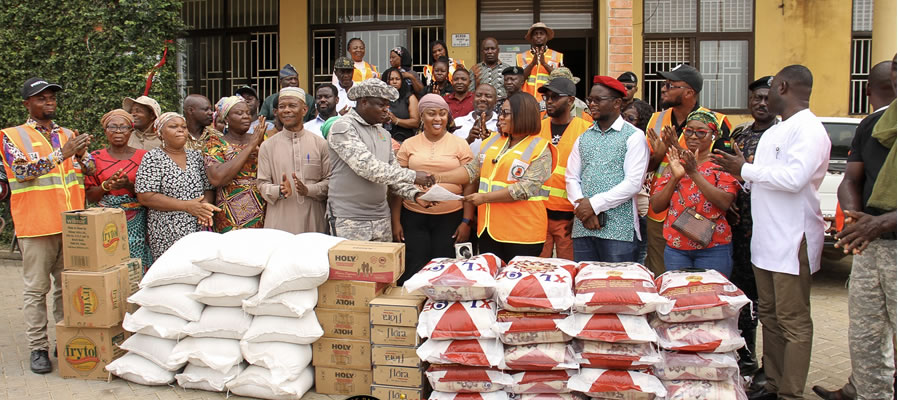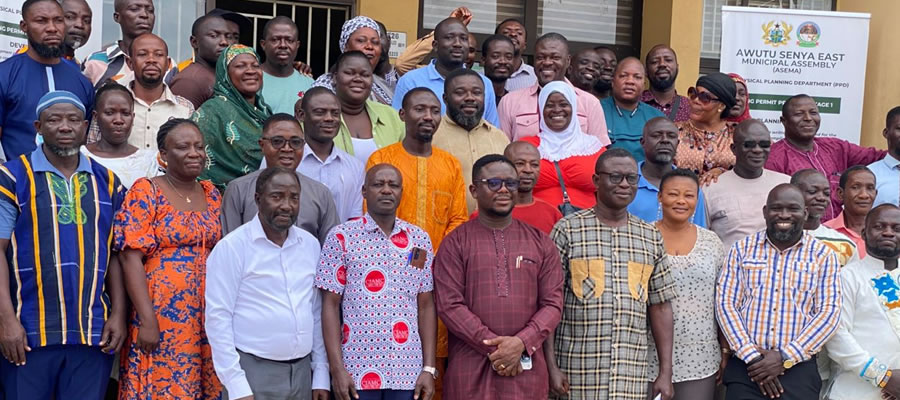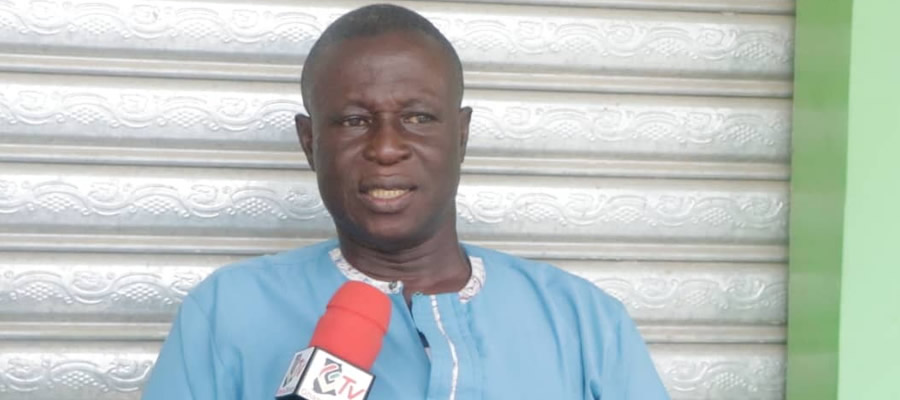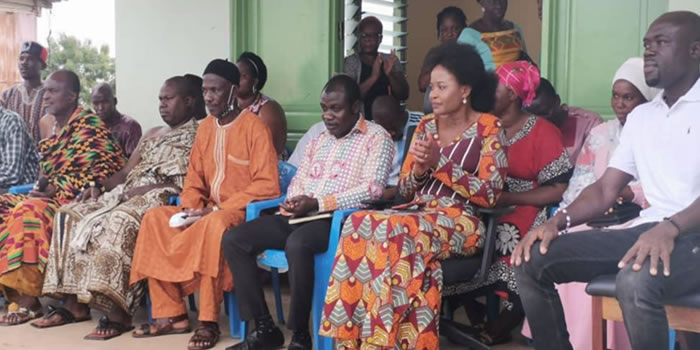

Water
Ghana Water Company Limited (GWCL) and Community Water and Sanitation Agency (CWSA) are the main agencies responsible for potable water supply in the District. Other prominent sources of water supply to the District are Boreholes, Hand Dug Wells, Rain Water catchment and Tanker Services.
- Urban Water Supply: The major source of water supply to the urban centres in the district are the Kwanyako Water Works from which the GWCL supply pipe borne to urban areas and other towns in the Municipality. The existing distribution network comprises several kilometres of pipeline and service reservoirs, which serve parts of Bawjiase, Awutu Beraku, Senya and their environs. Bawjiase, Awutu Beraku and Senya are served from the Kwanyako headworks.
The Kwanyarko head works is currently supplying 3,000 and 800 cubic metres to Senya District and Bawjiase District respectively, (source: GWCL divisions of district).
- Rural Water Supply: Rural settlements in the Municipality are either served by boreholes, hand dug wells or natural sources like rivers, streams and springs. Most of these natural sources flow seasonally and dry up during the dry season.
Like Ghana Water Company Limited (GWCL) which is responsible for urban water supply in the Municipality, CWSA has been the major partner in rural water supply. Currently the Development partners are assisting a number of communities with borehole facilities. There are also a few Non-Governmental Organizations (NGO’s) involved in the provision of water facilities in the communities.
Below is the water coverage on Area Council basis.
Table 25
Source: ASDA DWSP 2008.
Sanitation
Solid Waste Management
The volume of solid waste generated in the Municipality is estimated to be 7.33 tons per day. The category of solid waste generated comprises: plastics and polythene, Cartons and paper, Organic garbage, Metals, Broken bottles and glasses, Sawdust and wood shavings.
The Municipality uses the controlled crude dumping method which involves collection, transportation by skip loaders and dumping at the final disposal site, with occasional compacting done on it.
One of the main challenging issues in this regard is the acquisition of dumping sites, since the some of the traditional rulers feel reluctant in releasing portions of their lands for the sites.
The authorized final disposal site located at Akrampa is on lease; it has been rented by the assembly for three (3) years. However for the operations of Zoom Lion Company Ltd in the district, the situation of solid waste management would have been worse. Therefore the increasing urbanization of the district calls for improvement in the solid waste collection through:
• Installing a recycling plant for solid waste
• Acquisition of refuse trucks and containers
• Acquisition of sanitary tools eg. Wheel barrows
• Increase in labour
• Regular supply of fuel and lubricants
• Acquisition of final disposal sites
• Motivation of workers in refuse collection and disposal; and
• Compulsory provision of sanitary dustbins by landlords in their homes.
• Intensification of house to house collection.
With the increasing population influx into the district and the fact that population increase has a direct relationship with volume of waste generated, it is projected that the volume of waste generated would double in the next decade.
Generally, the existing sanitation facilities in the Municipality are inadequate and this put a lot of pressure on the available ones meanwhile other areas remain un-served. Available refuse containers are placed at vantage points of urban centres in the district are as indicated in the table below:
Table 26
The Assembly currently is only able to collect about 40% of refuse generated with the support of Zoomlion Company Ltd and other private service providers. Containers are placed in parts of communities being served and are lifted on regular basis. The inadequate situation highlighted in the table above has led to the springing up of pockets of crude dumping sites in the un-served areas. The problem of refuse collection is further compounded by the fact that the Assembly has no functional vehicles to cart waste to the final waste disposal site.
Management of liquid waste (human excreta) is also of a problem to the Assembly. There are inadequate latrines to serve the increasing number of people. Currently, there are five (5) belonging to private service providers. There are also a number of water closets and KVIP latrines for the use of various households in the urban centres. In the rural communities, most of them depend on traditional pit latrines and VIPs.
The Assembly collaborated with the CWSA, DANIDA, IDA, Plan Ghana and other Development partners assisted a number of communities and household members to construct their own toilet facilities. It is hoped that with increase in number of containers and vehicles for refuse collection, and an engineered landfill site, waste management will not be of much a problem anymore. The table below shows Development Partner (DP’s) support to communities.
Climate Change
The Municipality even though being closer to Accra and the Awutu Senya East Municipal Assembly, and also being a major producer of Pineapple and other Cash crops, cannot boast of Factories and Industries. As a result of that environmental degradation that results from factories and industry emissions and residual disposals are not prevalent. There is however, a Toilet Roll factory closer to Awutu Beraku whose residues needed checking so as to prevent its discharge polluting streams and other wetland that serve as sources of drinking water for surrounding communities. Regular monitoring of the facility and ensuring they followed laydown impact mitigation measures that should be outlined in the Environmental Impact Assessment report that the developer prepares.
So far the effect of climate change is not causing too much havoc on economic activities in the Municipality. Climate and geographical patterns have not changed much for the past few years. This is because bush burning and other unauthorized farming practices have not been rampant in the Municipality.
However, the prevalence of indiscriminate sand winning activities have had negative effects on landed resources which is increasingly causing environmental degradation and other climate change issues.
The Environmental Protection Agency (EPA) is not having a decentralized office in the Municipality. The monitoring of environmental issues is therefore done by the District Assembly with support of the Agency staff at closer Districts or the Headquarters in Accra.
Potential Climate Impacts in the District and Proposed Adaptation and Mitigation Strategies
Date Created : 10/29/2024 7:44:27 AM











 facebook
facebook
 X
X
 Youtube
Youtube
 instagram
instagram
 +233 593 831 280
+233 593 831 280 0800 430 430
0800 430 430 GPS: GE-231-4383
GPS: GE-231-4383 info@ghanadistricts.com
info@ghanadistricts.com Box GP1044, Accra, Ghana
Box GP1044, Accra, Ghana